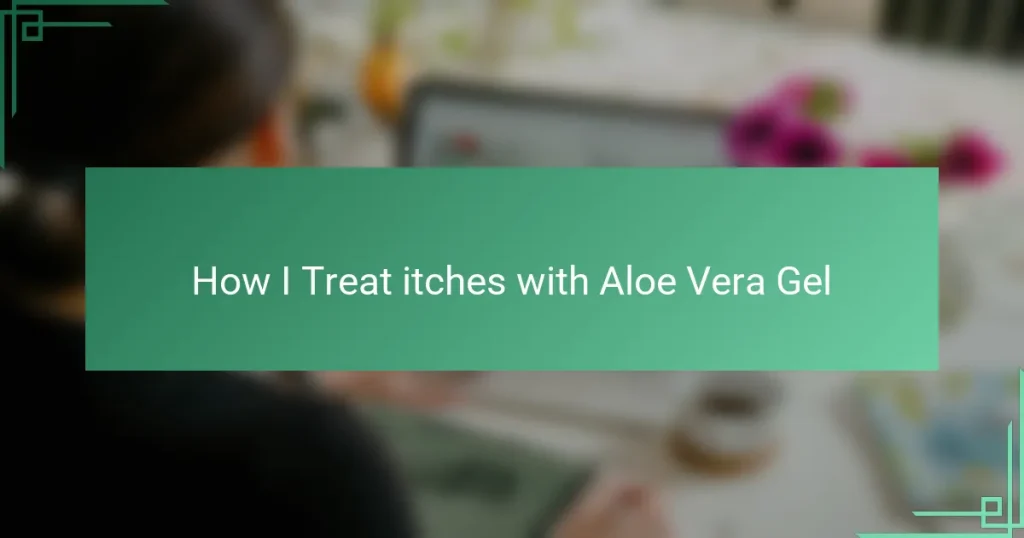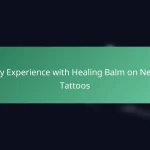Key takeaways
- Aloe vera gel provides soothing relief for skin irritations and supports healing with its vitamins and antioxidants.
- Common causes of tattoo itching include the healing process, dry skin, and irritation from external factors.
- Applying aloe vera correctly—using a thin layer and being mindful of hydration—can significantly improve comfort during tattoo healing.
- Maintaining cleanliness, avoiding tight clothing, and staying hydrated are effective strategies to prevent tattoo itches.
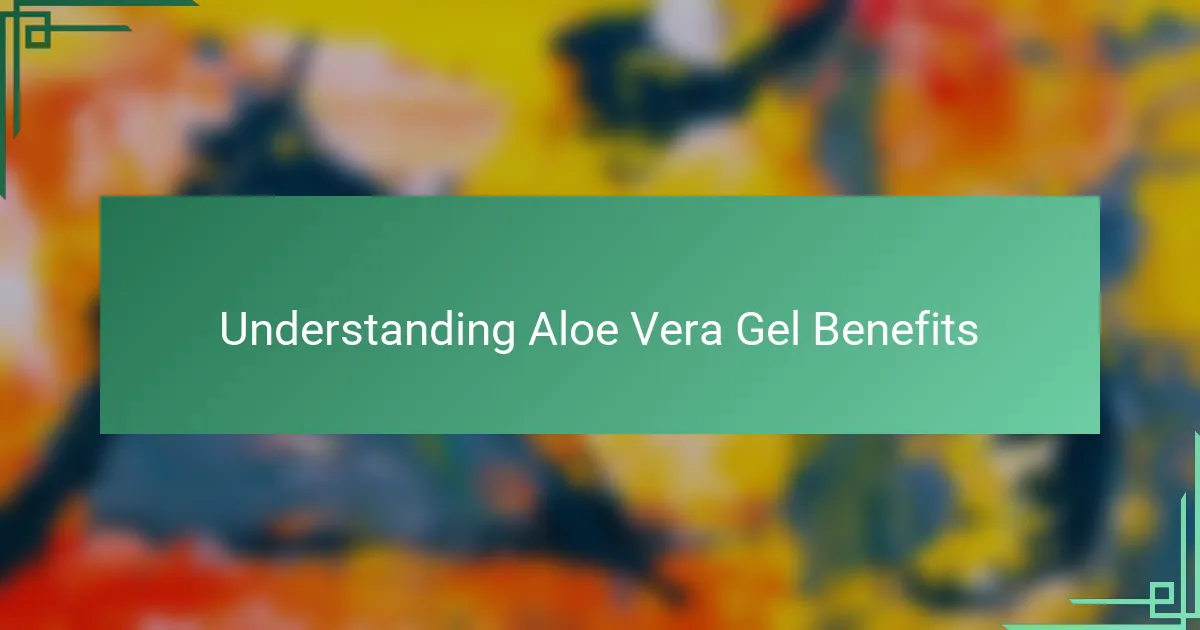
Understanding Aloe Vera Gel Benefits
Aloe vera gel has always been my go-to when my skin feels irritated or itchy. Its natural cooling effect instantly soothes discomfort, and I find myself reaching for it time and again. Have you ever noticed how quickly it calms redness and inflammation? For me, that quick relief feels like a small but powerful win.
What fascinates me most about aloe vera is its rich content of vitamins and antioxidants. These components don’t just ease the itch; they also support the skin’s healing process from within. Thinking about it, isn’t it remarkable how something so simple can nourish damaged skin while reducing irritation?
Over the years, I’ve come to appreciate aloe vera gel not only for its immediate comfort but also for its gentle care. Its moisturizing properties keep my skin from drying out, which often makes scratches or tattoo healing areas much more manageable. When you consider how many products strip or irritate skin, doesn’t aloe feel like a breath of fresh air?
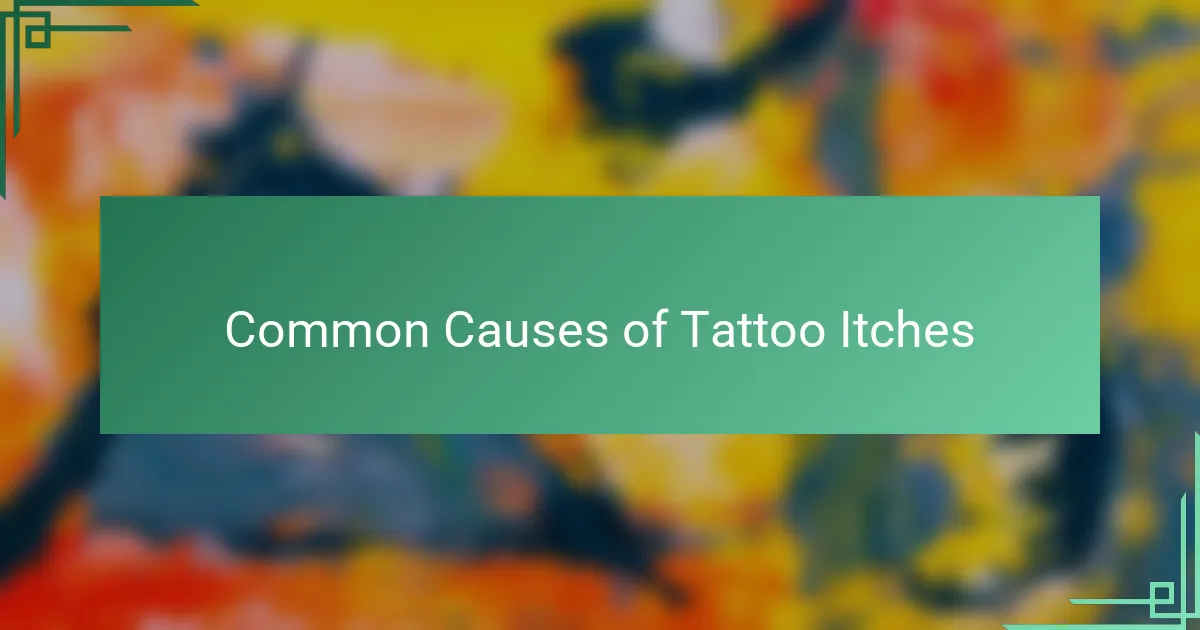
Common Causes of Tattoo Itches
When I first got my tattoo, the itching caught me off guard. It turns out, common causes of tattoo itches usually include the natural healing process—your skin is basically repairing itself and new cells are growing. Have you ever wondered why that harmless sensation can feel so annoying?
Sometimes, the itch is caused by dry skin around the tattooed area. I’ve noticed that when my skin loses moisture, the tightness and flakiness really ramp up the urge to scratch. It makes me think: how often do we overlook simple hydration when dealing with tattoo discomfort?
Another cause is irritation from external factors like fabrics rubbing against fresh ink or even certain tattoo aftercare products. From my experience, these little irritants can trigger unexpected itchiness that feels like a tiny battle every time I move. Doesn’t it seem ironic that protecting a tattoo can sometimes make it feel worse?
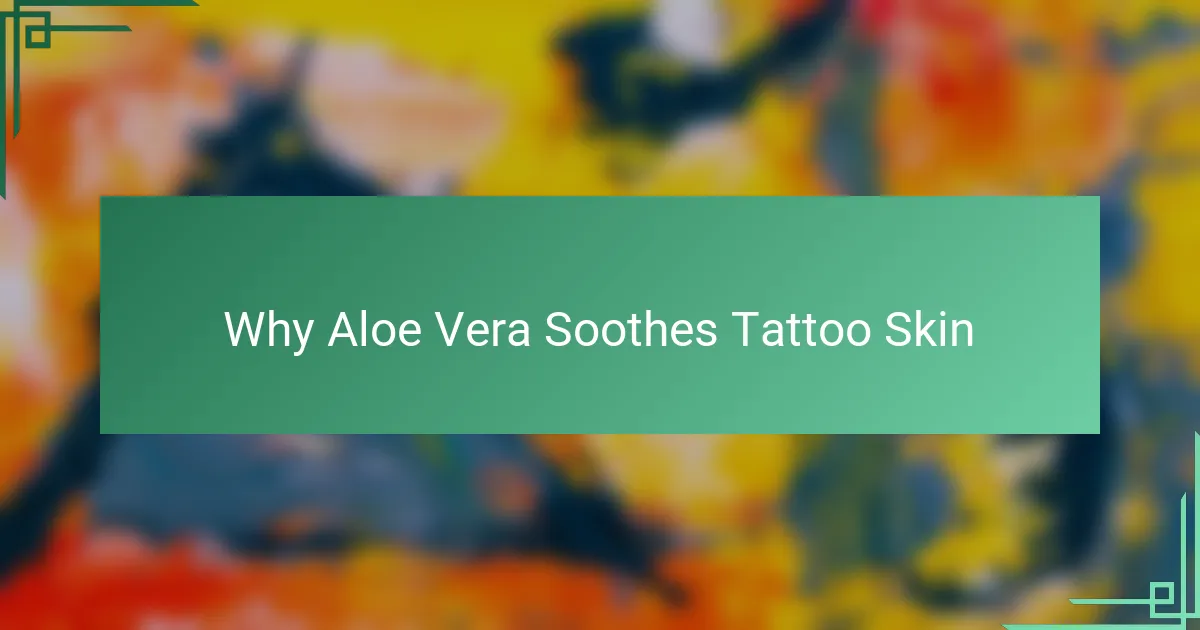
Why Aloe Vera Soothes Tattoo Skin
What makes aloe vera gel such a gentle hero for tattoo skin? From what I’ve experienced, it’s the combination of its anti-inflammatory compounds that actively reduce swelling and redness. That cooling sensation isn’t just comforting—it’s a sign that the gel is calming irritated nerves and opening up those tiny, healing blood vessels beneath the skin.
I remember applying aloe vera after getting a new tattoo and feeling an immediate softening of the itch that, honestly, surprised me. It’s like the gel creates a breathable barrier that locks in moisture without suffocating the skin, which is exactly what my sensitive tattoo needed. Have you ever noticed how some products leave your skin feeling sticky or heavy? Aloe vera feels so light and natural, almost like a second skin.
What truly stands out to me is how aloe vera nourishes while it soothes. The vitamins and enzymes work behind the scenes to support cell repair, accelerating the healing process. When I think about it, it’s amazing that something so simple from nature can do so much—soothing discomfort and helping my tattoo settle beautifully all at once.

How to Apply Aloe Vera for Tattoos
Applying aloe vera gel to a fresh tattoo is simpler than you might think, but doing it right really makes a difference. I usually start by washing my hands thoroughly—this small step prevents any unwanted germs from sneaking into the healing skin. Then, I gently dab a thin layer of pure aloe vera gel onto the tattoo without rubbing; I want it to soak in, not irritate the area further. Have you ever noticed how gentle touch feels more soothing than vigorous rubbing, especially on tender tattoo skin?
One thing I learned is to avoid overdoing it. When I first tried using aloe, I thought a thick coat would speed up healing, but my skin actually felt suffocated. Now, I apply just enough to keep the area lightly moisturized and refreshed, typically twice a day or whenever the itch becomes noticeable. Doesn’t it make sense that less is often more when it comes to caring for something as delicate as new ink?
I’ve found a quiet moment to sit and calmly apply aloe vera actually helps me reconnect with my tattoo’s healing journey. That cool, soothing sensation reminds me to be patient and gentle with my body. Have you tried taking a slow breath and appreciating that healing process while applying your aftercare? It transforms what could be an irritating chore into a small ritual of self-care.
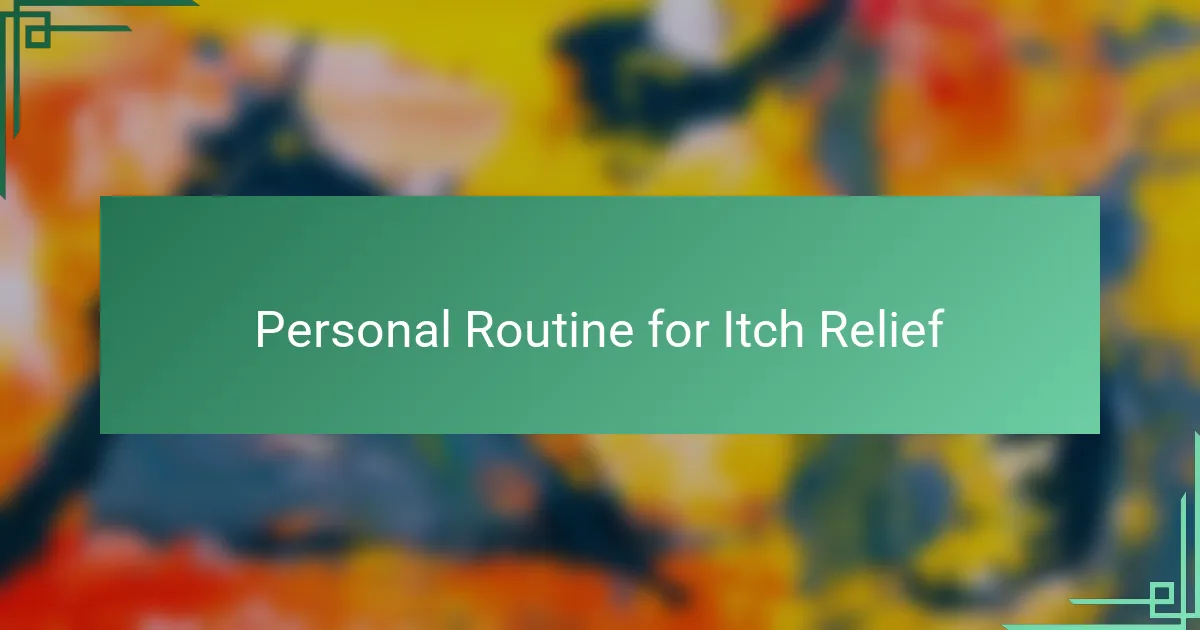
Personal Routine for Itch Relief
When the itching starts, I make it a point to apply aloe vera gel as soon as I notice the first tingle. Waiting only makes me more tempted to scratch, which I’ve learned only prolongs discomfort. Have you ever caught yourself wanting to scratch a fresh tattoo, knowing deep down it’s better not to? That little moment of discipline feels like a win.
I usually keep a small bottle of pure aloe vera gel close by—on my desk, nightstand, or gym bag—so relief is never out of reach. When the itch sneaks up during the day, a quick, gentle dab is enough to cool the sensation and keep the skin hydrated. From my experience, making aloe application part of my routine keeps the itch manageable without feeling like a chore.
What’s helped the most is tuning into my skin’s signals and responding before the itch becomes unbearable. Sometimes that means reapplying aloe after a hot shower when my skin tends to dry out. Doesn’t it feel empowering to take control of such an annoying sensation with just a few mindful steps? For me, that routine turns an irritating problem into a simple, calming ritual.
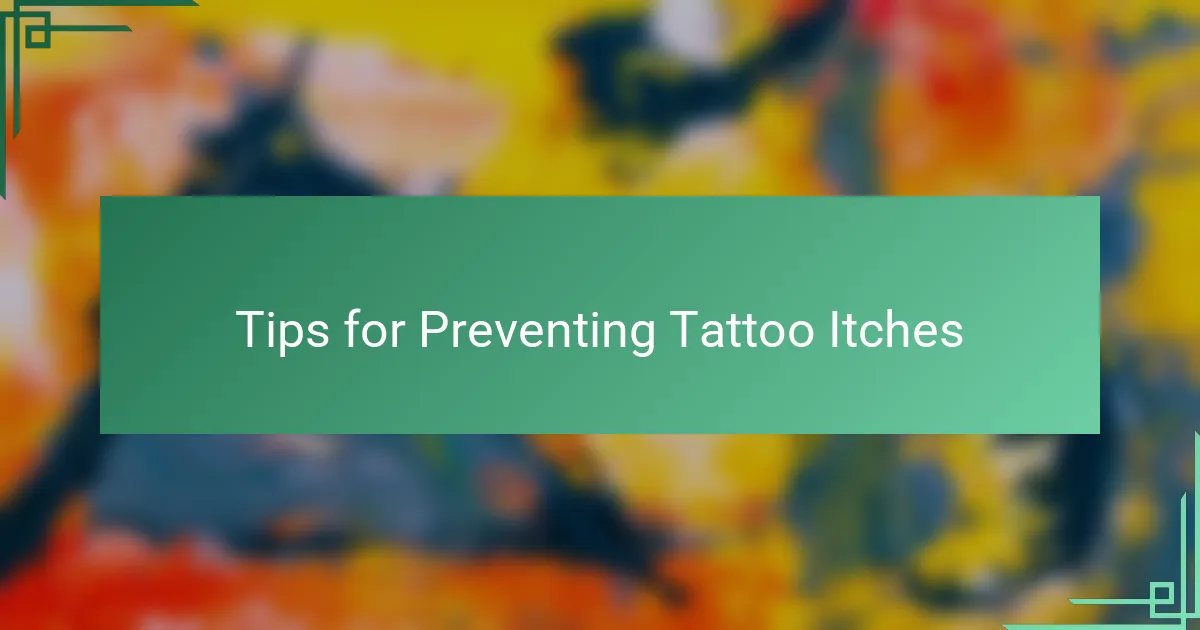
Tips for Preventing Tattoo Itches
Keeping your tattoo clean and moisturized is my first line of defense against those pesky itches. I’ve noticed that when I stick to a gentle washing routine and then apply aloe vera gel promptly, the itchiness barely has a chance to kick in. Have you ever caught yourself skipping this step and regretting it when the itching suddenly flares up?
Another tip I swear by is avoiding tight or rough clothing over a fresh tattoo. Early on, I made the mistake of wearing snug sleeves that rubbed constantly, and let me tell you, the itching was relentless. Do you realize how something as simple as choosing soft, loose fabrics can spare your skin from unnecessary irritation?
Finally, staying hydrated isn’t just good advice for your overall health—it really helps your tattooed skin too. I keep a water bottle handy because I’ve learned that dry skin is the ultimate itch trigger. Isn’t it surprising how something so straightforward can make a world of difference in your tattoo healing journey?
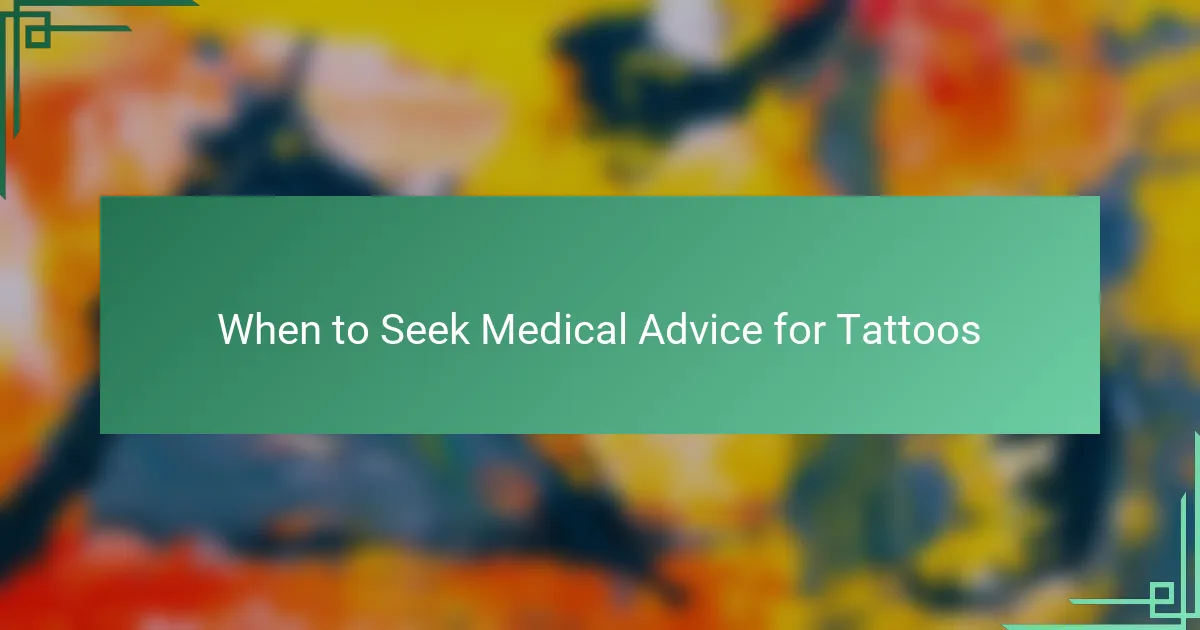
When to Seek Medical Advice for Tattoos
Knowing when to seek medical advice for a tattoo isn’t always straightforward. I’ve learned the hard way that persistent redness, swelling, or pain that worsens after a few days isn’t just normal healing—it can be a sign something’s wrong. Have you ever wondered if that lingering discomfort means an infection? If symptoms like these show up, it’s better to play it safe and reach out to a healthcare professional.
Sometimes, the skin around a new tattoo can blister or ooze, which made me nervous during my first healing phase. From my experience, seeing these signs is a clear signal to stop self-treating and get expert help. Have you considered how delaying medical attention might affect not just your tattoo, but your overall health?
I also found that if a fever accompanies tattoo discomfort, that’s a red flag I never ignore. It’s tempting to brush it off as part of the body’s response, but I remind myself that the combination of systemic symptoms and local irritation deserves immediate attention. When you think about it, isn’t preserving your health worth a quick call to a doctor?
